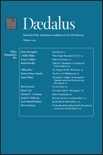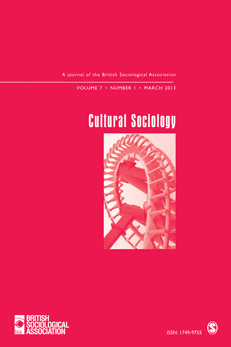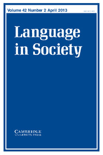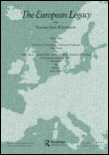
DAEDALUS
Scope & Guideline
Advancing Dialogue Across Humanities and Sciences
Introduction
Aims and Scopes
- Democracy and Free Speech:
The journal explores the critical role of free speech in democratic societies, addressing contemporary challenges such as disinformation, censorship, and the impact of digital platforms on public discourse. - Higher Education and Globalization:
DAEDALUS examines the evolving landscape of higher education, including the effects of globalization, the role of universities in society, and innovative educational models across different cultural contexts. - Social Justice and Equity:
The journal focuses on themes of social justice, equity, and the implications of implicit bias in various societal sectors, including education, law, and healthcare. - Mental Health and Wellbeing:
Through a multidisciplinary approach, DAEDALUS addresses mental health issues, emphasizing the social determinants of mental health and advocating for more humane and accessible mental health care. - Language and Identity:
The journal investigates the intersections of language, identity, and power, particularly in the contexts of race, migration, and social justice, highlighting the role of language in shaping societal narratives. - Artificial Intelligence and Ethics:
DAEDALUS critically engages with the ethical implications of artificial intelligence, exploring its impact on governance, society, and individual rights.
Trending and Emerging
- Digital Speech and Censorship:
There is a marked increase in the exploration of digital speech, censorship, and the implications of social media on public discourse, reflecting growing concerns over free speech in the digital age. - Intersections of Mental Health and Social Justice:
Recent publications highlight the relationship between mental health and social justice, emphasizing how social inequalities impact mental health outcomes and advocating for systemic changes. - Global Perspectives on Higher Education:
The journal is increasingly addressing global perspectives on higher education, focusing on innovations and challenges faced by institutions worldwide, including the impacts of globalization. - Implicit Bias and Structural Racism:
There is a growing emphasis on the study of implicit bias and its connection to structural racism, with a focus on how these issues manifest in various sectors, including education and law enforcement. - Artificial Intelligence and Governance:
Emerging discussions surrounding the ethical implications of artificial intelligence and its governance are becoming more prominent, reflecting societal concerns about technology's role in shaping future governance.
Declining or Waning
- Traditional Literary Analysis:
There is a noticeable decline in papers focused solely on traditional literary analysis and criticism, as the journal shifts towards more interdisciplinary and societal impact-oriented themes. - Environmental Studies as a Standalone Discipline:
Previously, environmental issues were often addressed in isolation; however, the journal is increasingly integrating these discussions into broader social justice and health frameworks, leading to less standalone focus on environmental studies. - Historical Perspectives on Academic Institutions:
While historical analyses of academic institutions have been prominent, recent publications suggest a shift towards contemporary issues and future challenges, reducing the frequency of historical perspectives. - Economic Theory without Social Context:
There appears to be a waning focus on purely theoretical economic discussions, with a trend towards integrating economic analysis within broader societal and ethical discussions. - Conventional Governance Models:
Discussions centered around traditional governance models are becoming less frequent as the journal increasingly emphasizes innovative and adaptive governance frameworks in response to modern challenges.
Similar Journals

Paideusis-The Journal of the Canadian Philosophy of Education Society
Fostering Critical Reflections on LearningPaideusis - The Journal of the Canadian Philosophy of Education Society serves as a vital platform for scholarly discussion and inquiry within the field of philosophy of education. Published by the Canadian Philosophy of Education Society (CPES) and embracing an Open Access model since 1987, this journal fosters an inclusive environment for researchers, educators, and students seeking to engage with contemporary educational theories and practices. With an emphasis on philosophical reflection and critical analysis, Paideusis invites contributions that challenge and extend our understanding of educational paradigms, making it a crucial resource for those committed to advancing discourse in education. The journal not only aims to promote intellectual engagement but also to cultivate a community where new ideas can flourish, ultimately shaping the future of educational thought and practice.

Etica & Politica
Fostering Interdisciplinary Dialogue on Ethics and PoliticsEtica & Politica is a distinguished open access journal published by UNIV STUDI TRIESTE, EDIZIONI UNIVERSITA TRIESTE-EUT, focusing on the interconnected fields of philosophy, sociology, and political science. With an ISSN of 1825-5167, this journal has been a platform for scholarly dialogue and research dissemination since its inception in 1999, making it an essential resource for researchers, professionals, and students alike. Despite its current classification in the Q4 quartile for both Philosophy and Sociology/Political Science categories, Etica & Politica is committed to fostering interdisciplinary discussions that challenge prevailing paradigms and encourage innovative thought. Covering a converged time frame from 2013 to 2023, the journal offers an invaluable repository of insights and analyses that contribute to the academic discourse on ethics and politics, and strives to elevate its presence through rigorous peer review and scholarly contributions. Based in Italy, it continues to attract a diverse range of academic perspectives and invites contributors to engage in a vibrant intellectual community.

Rupkatha Journal on Interdisciplinary Studies in Humanities
Engaging Minds in the Pursuit of Cultural InsightsRupkatha Journal on Interdisciplinary Studies in Humanities, published by Aesthetics Media Services - AesthetixMS, is a pioneering open-access journal that has been enriching the fields of arts and humanities since its inception in 2009. With an ISSN of 0975-2935, this journal provides a platform for scholarly articles, research, and critical discussions that transcend disciplinary boundaries, fostering a holistic understanding of human culture and creativity. Although it has discontinued its coverage in Scopus, it maintains a commendable rank of #75 out of 163 in the general arts and humanities category, placing it in the 54th percentile—a testament to its contributions to the academic community. Situated in West Bengal, India, Rupkatha is committed to accessibility and the dissemination of knowledge, inviting researchers, professionals, and students alike to engage with its rich content. With its focus on interdisciplinary approaches, the journal plays a vital role in fostering dialogue and innovation within the humanities, making it an essential resource for anyone interested in exploring the complexities of human expression.

FWU Journal of Social Sciences
Unlocking Perspectives, Transforming Communities.FWU Journal of Social Sciences is a pivotal platform for scholars and practitioners interested in the diverse disciplines of social sciences, including education, history, psychology, sociology, and political science. Published by the Shaheed Benazir Bhutto Women University in Peshawar, Pakistan, this journal seeks to promote interdisciplinary research and innovative approaches to pressing social issues, contributing significantly to the academic discourse within these fields. With an ISSN of 1995-1272 and a growing impact, the journal is ranked in various quartiles across its categories, reflecting its commitment to high-quality scholarship and relevance. As an open-access journal, it ensures that research findings are disseminated widely, enhancing accessibility for researchers, students, and policy-makers. The journal's scope spans from 2018 to 2024, aiming to foster a critical understanding of the complexities of human society and social behavior, making it an essential read for those engaged in the social sciences.

Revista Historia-Debates e Tendencias
Empowering Scholars with Accessible Historical InsightsRevista Historia-Debates e Tendencias is a prestigious academic journal dedicated to the study of historical themes, discourses, and trends in the field of history and social sciences. Published by UNIV PASSO FUNDO, this journal has been a vital resource for scholars and practitioners in Brazil and beyond since it transitioned to an Open Access model in 2007, ensuring that research is freely accessible to all. With its ISSN 1517-2856 and E-ISSN 2238-8885, the journal aims to foster critical discussions and inter-disciplinary dialogues on historical narratives, methodologies, and perspectives. By providing a platform for both emerging and established researchers, it plays an essential role in advancing the field of history while contributing to the global academic community. As a publication that encourages innovative research and scholarly debate, Revista Historia-Debates e Tendencias serves as an indispensable tool for anyone engaged in historical inquiry and analysis.

Universitas-Revista de Ciencias Sociales y Humanas
Innovating Research for a Global AudienceUniversitas-Revista de Ciencias Sociales y Humanas is a distinguished academic journal published by the Salesian Polytechnic University of Ecuador, aimed at advancing research and knowledge in the fields of social sciences and humanities. With an ISSN of 1390-3837 and an E-ISSN of 1390-8634, this journal has embraced the Open Access model since 2002, ensuring that its valuable content is freely accessible to researchers, practitioners, and students globally. Situated in Cuenca, Ecuador, this journal serves as a vital resource for exploring interdisciplinary approaches and contemporary issues in social sciences, offering a platform for rigorous scholarly discourse and innovative research. Given its commitment to quality and accessibility, Universitas plays a crucial role in fostering academic collaboration and advancing the frontiers of knowledge in Latin America and beyond.

Cultural Sociology
Innovating Research in Cultural StudiesCultural Sociology is a leading academic journal published by SAGE Publications Ltd, aimed at advancing the field of cultural studies and social sciences. Established in 2007 and converging until 2024, this UK-based journal boasts a remarkable Q1 ranking in both Cultural Studies and Miscellaneous Social Sciences as of 2023, solidifying its reputation as a significant contributor to scholarly discourse. With a Scopus rank of #83 out of 1304 in its primary field, Cultural Sociology offers an important platform for researchers, professionals, and students to explore the intricate relationships between culture, society, and identity. Although it is not currently Open Access, this journal is dedicated to fostering interdisciplinary dialogue and rigorous research, making it an essential resource for those seeking to engage deeply with cultural phenomena and social dynamics.

Andamios
Connecting disciplines to elevate Hispanic scholarship and beyond.Andamios is a distinguished academic journal published by UNIV AUTONOMA CIUDAD MEXICO, focusing on interdisciplinary research spanning the fields of Arts and Humanities and Social Sciences. With an ISSN of 1870-0063 and an E-ISSN of 2594-1917, this journal plays a pivotal role in disseminating innovative ideas and research findings in its disciplines. Since its inception in 2008, Andamios has persisted in contributing quality scholarship, evidenced by its current Q3 category ranking in both the Arts and Humanities and Social Sciences fields for 2023. As a resource that caters to researchers, professionals, and students alike, Andamios fosters an environment of academic excellence, critical thinking, and cross-disciplinary dialogue. Available primarily through institutional access, this journal showcases vital studies that aim to challenge conventional perspectives and inspire new research trajectories, establishing itself as a valuable tool for those engaged in the evolution of Hispanic scholarship and beyond.

LANGUAGE IN SOCIETY
Exploring the Power of Words in Social ContextsLANGUAGE IN SOCIETY, published by Cambridge University Press, is a leading interdisciplinary journal that explores the intricate relationship between language and social factors. With an impressive track record since its inception in 1972, this journal has become a critical resource for researchers and practitioners in the fields of linguistics, sociology, and political science, as evidenced by its high ranking in both the Q1 quartile and Scopus percentile rankings. In 2023, it was placed within the top 94th percentile among its peers in language and linguistics and the 93rd percentile in sociology. Furthermore, LANGUAGE IN SOCIETY provides an insightful platform for understanding language as both a social practice and a key element of identity and power dynamics. Although it does not currently offer Open Access options, its rigorous peer-reviewed content remains essential for advancing scholarship and informing professional practice in the study of language in diverse societal contexts. With its scholarly contributions, LANGUAGE IN SOCIETY continues to shape discourse and foster academic collaboration across disciplines.

European Legacy-Toward New Paradigms
Charting the Course of Contemporary Cultural StudiesEuropean Legacy-Toward New Paradigms is a distinguished academic journal published by Routledge Journals, Taylor & Francis Ltd, focusing on interdisciplinary approaches to cultural studies, history, and philosophy. With an ISSN of 1084-8770 and an E-ISSN of 1470-1316, this journal has made significant contributions to the understanding of European heritage and its impact on contemporary thought and society since its inception in 2001. It currently holds a Q3 ranking in Cultural Studies, History, and Philosophy, reflecting its relevance and scholarly impact within the academic community. Although not an Open Access journal, European Legacy provides valuable insights and research findings through its carefully curated articles, making it an essential resource for researchers, professionals, and students alike. The journal's commitment to exploring new paradigms fosters critical dialogue and encourages innovative perspectives on Europe’s complex legacies, thereby positioning itself as a vital platform for ongoing academic discourse.